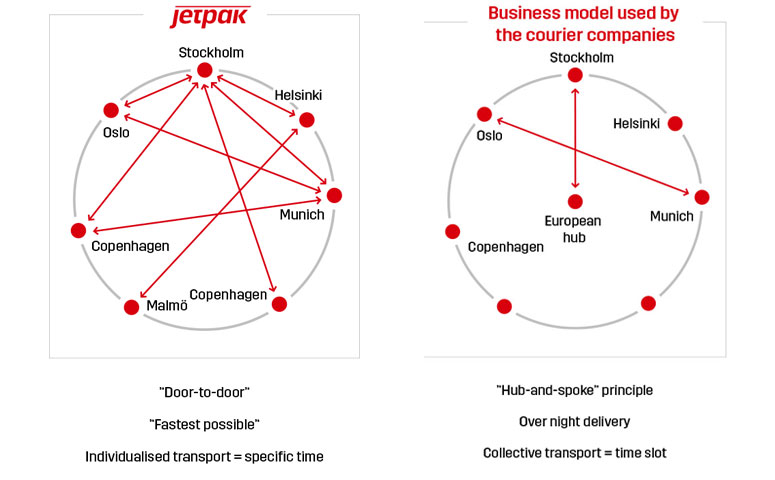Jetpak offers logistics solutions in Europe and we specialise in time-critical air-based express and long distance deliveries from door-to-door in the Nordic region. We primarily operate B2B.
The overall market for logistics solutions comprises a number of different sub-segments based on different types of business models and services. These are usually divided into:
- land transport
- third party logistics (3PL)
- air and sea-based transport
- courier, express and parcel shipments (CEP)
Jetpak is exclusively active within the CEP segment, the segment which generally has the highest margins within the logistics industry.
